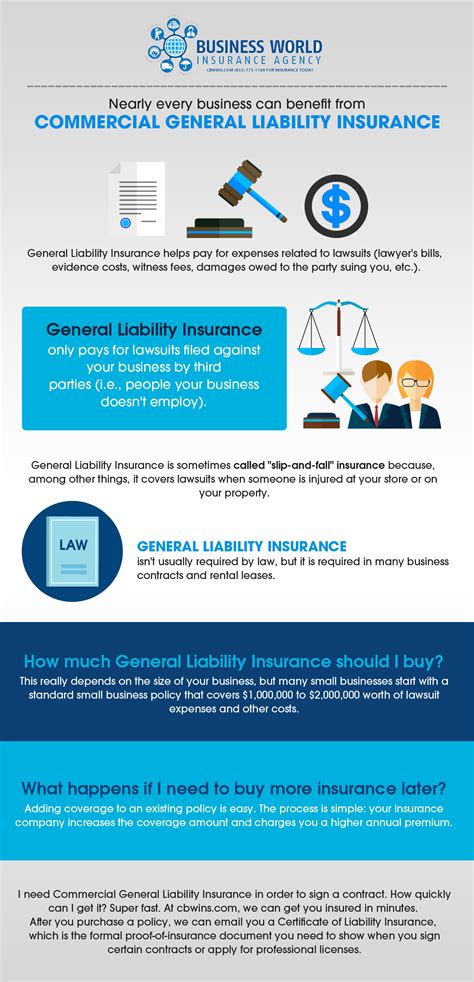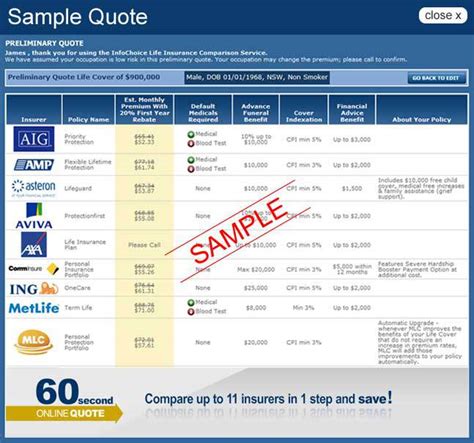Liability Insurance For Businesses

Liability insurance is an essential aspect of risk management for any business, regardless of its size or industry. In today's complex and litigious world, businesses face an array of potential liabilities that can arise from various sources, including customers, employees, vendors, and the general public. A well-designed liability insurance policy acts as a vital safeguard, providing financial protection and peace of mind. This article delves into the intricacies of liability insurance, offering expert insights and guidance for businesses seeking to navigate this critical aspect of their operations.
Understanding Liability Insurance

Liability insurance is a type of coverage that protects businesses from financial losses arising from claims of negligence or harm caused to others. It provides a safety net for businesses, ensuring they can withstand the financial burden of legal fees, settlements, and judgments resulting from such claims. This coverage is particularly crucial in an era where the threat of lawsuits is ever-present, and the potential costs associated with litigation can be devastating for even the most well-established businesses.
The scope of liability insurance is broad and can cover a range of scenarios, including bodily injury, property damage, personal and advertising injury, and even defense costs. By purchasing liability insurance, businesses demonstrate their commitment to safeguarding their operations and their stakeholders, including employees, customers, and the community at large.
Key Components of Liability Insurance Policies

A comprehensive liability insurance policy typically consists of several key components, each designed to address specific risks and provide tailored coverage.
General Liability Insurance
General liability insurance is the foundation of most business liability coverage. It provides protection against a wide range of common risks, including bodily injury, property damage, and personal and advertising injury. This coverage can help businesses cover the costs of medical expenses, property repairs, and legal defense if they are sued for negligence.
For instance, consider a scenario where a customer slips and falls on a wet floor in your retail store. General liability insurance would step in to cover the customer's medical bills and any legal fees associated with a potential lawsuit. It's a vital safeguard for businesses operating in physical spaces where accidents can occur.
Product Liability Insurance
Product liability insurance is crucial for businesses that manufacture, distribute, or sell goods. It provides protection against claims arising from defects in the products sold by the business. This coverage is especially important given the potential for significant financial losses if a product is found to be defective and causes harm.
Take the example of a small electronics manufacturer. If one of their products malfunctions and causes a fire, resulting in property damage and injuries, product liability insurance would cover the associated costs, including repairs, medical expenses, and legal fees.
Professional Liability Insurance (Errors and Omissions)
Professional liability insurance, also known as errors and omissions (E&O) insurance, is designed for businesses that provide professional services. It protects against claims of negligence, errors, or omissions in the services provided. This coverage is vital for professionals such as consultants, accountants, lawyers, and IT service providers, who face the risk of being sued for mistakes made in the course of their work.
For example, a consulting firm that provides financial advice could face a lawsuit if their recommendations lead to significant financial losses for a client. Professional liability insurance would help cover the legal costs and any settlements or judgments resulting from such a claim.
Cyber Liability Insurance
In today’s digital age, cyber liability insurance has become an essential component of any business’s risk management strategy. This coverage protects businesses from the financial consequences of cyber attacks, data breaches, and other cyber-related incidents. With the increasing prevalence of cyber threats, this type of insurance is crucial for businesses that handle sensitive data or operate online.
Consider a small online retailer that experiences a data breach, resulting in the exposure of customers' personal and financial information. Cyber liability insurance would help cover the costs of investigating and containing the breach, as well as providing credit monitoring services for affected customers and legal fees associated with any resulting lawsuits.
Benefits of Liability Insurance
The benefits of liability insurance extend far beyond the financial protection it provides. By investing in comprehensive liability coverage, businesses can enjoy several advantages that contribute to their long-term success and stability.
Peace of Mind
One of the most significant advantages of liability insurance is the peace of mind it offers. Business owners can rest assured knowing that they have a robust safety net in place to protect them from unexpected liabilities. This peace of mind allows them to focus on growing their businesses without constant worry about potential legal and financial pitfalls.
Enhanced Reputation
Liability insurance can also contribute to a business’s reputation and brand image. By demonstrating a commitment to protecting their operations and stakeholders, businesses can build trust with customers, partners, and the community. This trust can lead to increased customer loyalty, better business relationships, and a more positive public perception.
Attracting and Retaining Talent
In today’s competitive job market, offering comprehensive benefits is a key strategy for attracting and retaining top talent. Liability insurance is an essential component of a robust benefits package, as it provides employees with peace of mind knowing that their well-being is protected in the event of an accident or injury while on the job.
Improved Financial Stability
Liability insurance plays a crucial role in maintaining a business’s financial stability. By covering the costs of legal fees, settlements, and judgments, liability insurance prevents businesses from facing significant financial burdens that could threaten their survival. This financial stability is essential for long-term growth and sustainability.
Evaluating and Customizing Your Liability Insurance Coverage
Every business is unique, and its liability insurance needs will vary based on factors such as industry, size, location, and specific risks. It’s essential to carefully evaluate your business’s unique circumstances and tailor your liability insurance coverage accordingly.
Conduct a Risk Assessment
Start by conducting a thorough risk assessment of your business. Identify the specific liabilities your business faces, whether it’s the risk of accidents on your premises, the potential for product defects, or the likelihood of errors in your professional services. This assessment will help you determine the types and levels of coverage you require.
Work with an Insurance Professional
Engaging the services of a qualified insurance broker or agent can be invaluable in navigating the complex world of liability insurance. These professionals can provide expert guidance tailored to your business’s needs, helping you understand the intricacies of different coverage options and ensuring you obtain the most suitable policy.
Review and Update Regularly
Liability insurance is not a one-time purchase; it requires ongoing attention and regular updates. As your business grows and evolves, so too will your liability risks. Regularly review your policy to ensure it continues to provide adequate coverage. Consider conducting annual reviews or whenever significant changes occur in your business operations or structure.
Conclusion

Liability insurance is a critical component of any business’s risk management strategy. By understanding the different types of liability coverage and tailoring your policy to your unique needs, you can protect your business from financial ruin and maintain a stable, thriving operation. With the right liability insurance in place, you can focus on what you do best: growing your business and serving your customers.
How much does liability insurance cost for businesses?
+The cost of liability insurance for businesses can vary widely based on factors such as the type of business, its size, location, and the specific risks it faces. On average, small businesses can expect to pay between 300 and 1,000 per year for general liability insurance. However, the cost can be significantly higher for businesses in high-risk industries or those with a history of claims. It’s important to shop around and compare quotes from multiple insurers to find the best coverage at the most competitive price.
What happens if a business doesn’t have liability insurance and faces a claim?
+If a business does not have liability insurance and faces a claim, it can be financially devastating. The business would be responsible for paying all legal fees, settlements, and judgments out of pocket, which could quickly deplete its financial resources. In some cases, a business might even be forced to declare bankruptcy to manage the debt burden. It’s crucial for businesses to recognize the importance of liability insurance and take proactive steps to protect themselves.
Can liability insurance be customized to fit the unique needs of a business?
+Yes, liability insurance policies can be customized to fit the unique needs of a business. Insurance providers offer a range of coverage options and limits, allowing businesses to choose the level of protection that aligns with their specific risks and budget. Additionally, businesses can often purchase separate endorsements or riders to enhance their coverage in specific areas. Working with an insurance professional can help ensure that a business’s liability insurance is tailored to its unique circumstances.



